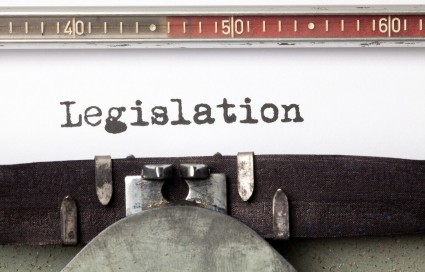
On November 21, 2018, the Ontario Government passed Bill 47, also known as the Making Ontario Open for Business Act, 2018 (“Bill 47”). The new law repeals and re-writes many of the changes brought into effect by the Fair Workplaces, Better Jobs Act, 2017 (“Bill 148”) passed in 2017 by the previous government.
Bill 47 will have a significant impact on the daily lives of both Employers and Employees by amending both the Employment Standards Act, 2000, and the Labour Relations Act, 1995.
The following changes to the Employment Standards Act, 2000, brought about by Bill 47 come into force on January 1, 2019:
Minimum Wage
- The minimum wage will remain frozen at $14.00 – it will not increase to $15.00 on January 1, 2019, as previously planned.
- Annual adjustments to minimum wage tied with inflation will restart on October 1, 2020.
- The requirement for the Minister to review minimum wage every five years is repealed.
Scheduling
- Employees who regularly work more than 3 hours a day will be entitled to a minimum of 3 hours’ pay for shifts that are under three hours – not repealed.
- The scheduling provisions under Bill 148, which were meant to come in to force on January 1, 2019, are repealed, meaning:
- Employees will not have the right to request changes to their schedules or work location after 3 months of employment;
- Employees who were scheduled to work or are put on-call with fewer than 96 hours’ notice will not be entitled to refuse the shift;
- Employees who are on-call but not called in to work will not be eligible for 3 hours of pay;
- Employees who are scheduled or on-call, but whose shift is canceled within 48 hours before the shift was to begin, will not be eligible for 3 hours of pay; and
- An Employer’s record-keeping requirements related to these scheduling provisions revert to pre-Bill 148 requirements.
Public Holiday Pay
- Calculation of Public Holiday Pay entitlement will revert back to the formula in place prior to Bill 148 – entitlement is calculated based on total amount of regular wages earned and vacation pay payable to the employee in the 4 weeks prior to the work week in which the public holiday occurred, divided by 20.
Equal Pay for Equal Work
- The entitlement to equal pay for equal work based on “difference in employment status” – meaning whether an employee is part-time, full-time, temporary, seasonal, or casual – is repealed.
- Related equal pay provisions for temporary help agency employees are also repealed.
Personal Emergency Leave
- The 10 days of Personal Emergency Leave (2 paid and 8 unpaid days) in place under Bill 148 is replaced with three new unpaid leaves for employees who have been employed for at least two consecutive weeks: Sick Leave, Family Responsibility Leave, and Bereavement Leave.
- Employees are entitled to 3 unpaid Sick Leave days per calendar year for personal illness, injury or medical emergency.
- Employees are entitled to 3 unpaid Family Responsibility days per calendar year because of illness, injury, medical emergency, or urgent matter of a ‘family member’ as defined in Bill 47.
- Employees are entitled to 2 unpaid Bereavement Leave days per calendar year because of the death of a ‘family member’ as defined in Bill 47.
- An Employee may be required to provide evidence reasonable in the circumstances, which can include a Doctor’s Note, that they are entitled to the Leave. This eliminates Bill 148’s prohibition on Employers requiring a doctor’s note as evidence of entitlement to leave.
Misclassification
- With respect to whom the Employment Standards Act, 2000, applies in misclassification claims or investigations, Bill 47 puts the onus on the worker to establish that they are an “employee,” rather than the reverse onus on an Employer to establish that the worker is not an employee.
What will stay the same?
Bill 47 will not change all the amendments to the Employment Standards Act, 2000, which were introduced by Bill 148. The following provisions are not repealed:
- Prior minimum wage increases;
- Paid leave for domestic or sexual violence; and
- 3 weeks’ vacation time, and six per cent vacation pay, for employees with 5 years or more of service.
The following changes to the Labour Relations Act, 1995, came in to effect on November 21, 2018:
- No Card-based certification in the building services industry, the home care and community services industry or for temporary help agencies;
- No rule to require an employer to hand over their employees’ personal information to a union; and
- Six-month limitation restored for an employee to seek reinstatement after the start of a strike or lock-out.

5 Comments on "Open For Business – How Bill 47 Replaces Bill 148"
Trackbacks for this post